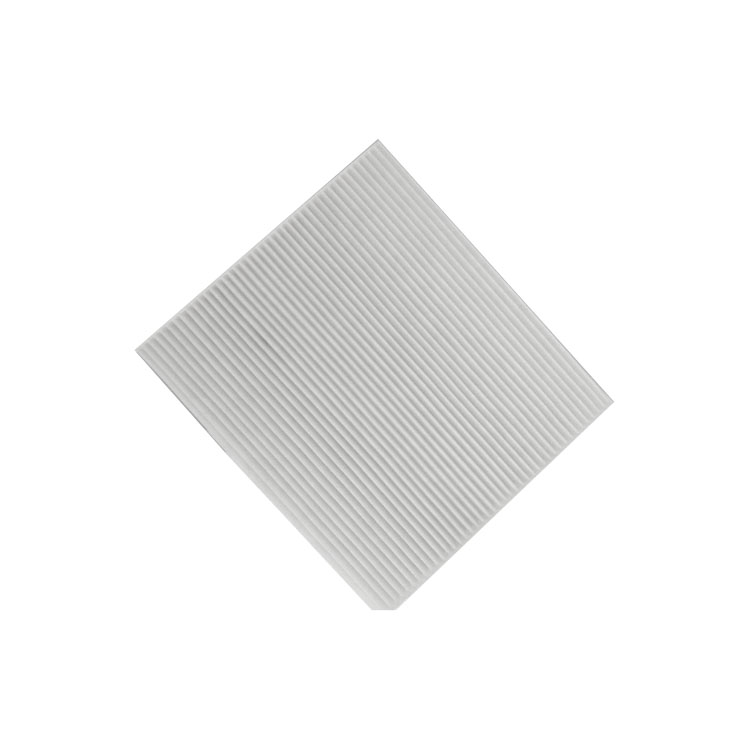Oct . 22, 2024 09:42 Back to list
High-Performance Pleated HEPA Filters for Improved Air Quality and Filtration Efficiency
The Importance of Pleated HEPA Filters in Indoor Air Quality
In the contemporary world, where air pollution and allergens are prevalent, ensuring the purity of indoor air has become more vital than ever. One of the most effective solutions for enhancing indoor air quality is the use of pleated High-Efficiency Particulate Air (HEPA) filters. These filters are engineered to trap a substantial amount of airborne particles, providing a clean and safe environment for homes, offices, and industrial settings.
What is a Pleated HEPA Filter?
Pleated HEPA filters are designed with a series of folds or pleats that significantly increase the surface area of the filter material. This innovative design allows for greater air flow and higher efficiency in capturing airborne contaminants. To qualify as a HEPA filter, it must meet stringent standards set by the Department of Energy (DOE), requiring it to remove at least 99.97% of particles that are 0.3 microns in diameter. This size is particularly important because it is often cited as the most penetrating particle size (MPPS), where filter efficiency is most critical.
Benefits of Using Pleated HEPA Filters
1. Efficiency in Particle Removal Pleated HEPA filters excel at trapping a wide range of airborne particles, including dust, pollen, pet dander, smoke, and mold spores. This efficiency is crucial for individuals suffering from allergies or asthma, creating a healthier living or working environment.
2. Longevity and Cost-Effectiveness Thanks to their larger surface area, pleated HEPA filters can capture more particles before becoming clogged. This means they typically last longer than traditional flat filters, reducing the frequency of replacements and ultimately saving money in the long run.
3. Improved Airflow The pleated design not only helps in capturing pollutants but also aids in maintaining optimal airflow within HVAC systems. By facilitating better airflow, these filters allow heating and cooling systems to operate more efficiently, which can lead to lower energy costs.
pleated hepa filter product

4. Versatility Pleated HEPA filters are suitable for various applications, from residential units to commercial settings and industrial air purification systems. Their adaptability makes them an ideal choice for a wide range of environments.
5. Environmental Impact By improving indoor air quality, pleated HEPA filters contribute to overall health and well-being. Cleaner air can reduce the incidence of respiratory issues, leading to better productivity in workplaces and healthier home environments.
Choosing the Right Pleated HEPA Filter
When considering pleated HEPA filters, it is essential to assess factors such as the MERV (Minimum Efficiency Reporting Value) rating, which indicates the filter's particulate removal efficiency. While HEPA filters typically carry high MERV ratings, it is advisable to verify product specifications to ensure compliance with HEPA standards.
Further, the size and compatibility of the filter with existing HVAC systems must be taken into account. Regular maintenance, including timely replacements, will ensure the filter continues to work efficiently. Most manufacturers recommend changing HEPA filters every 6 to 12 months, depending on usage and environmental conditions.
Conclusion
In conclusion, the use of pleated HEPA filters is an essential strategy for mitigating airborne pollutants and improving indoor air quality. Their efficiency in capturing microscopic particles, coupled with the advantages of increased surface area and longevity, makes these filters a practical choice for anyone desiring a healthier indoor environment. As awareness of air quality issues continues to grow, investing in high-quality pleated HEPA filters will play a crucial role in safeguarding health and enhancing life quality for individuals and communities alike. By making informed choices about air filtration, we can breathe easier and lead healthier lives.
-
Cheap PLJY109-500 Full-Auto HDAF Expanded Mesh Spiral Coiling Machine - High Efficiency & Quality Manufacturer
NewsJul.08,2025
-
Best PLHJ-6 Full-Auto Eco Filter Rotary Heat Plating Machine - High Efficiency & Eco-Friendly Solution
NewsJul.08,2025
-
High-Efficiency Paper Pleating Machine for Filters Trusted Filter Paper Pleating Machine Company
NewsJul.07,2025
-
High-Performance Oil Filter for Cadillac ATS – Reliable Engine Protection Solutions
NewsJul.07,2025
-
High Quality PU Glue for Filters – Reliable Filter Glue Supplier & Exporter Get PU Glue Quotes Now
NewsJul.07,2025
-
China PLJL-4 Seal Leakage Tester for Spin-On Filter - High-Precision Multi-Station Testing Solutions
NewsJul.06,2025
